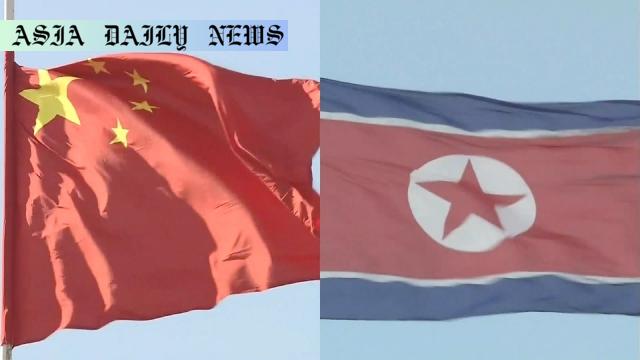Smuggling: South Korean media reports a North Korean ship suspected of smuggling coal sank after colliding with a Chinese vessel.
A North Korean ship involved in alleged coal smuggling sank after colliding with a Chinese vessel in February.
Nearly 20 North Korean crew members are believed to have perished in the accident.
The incident raises questions about UN sanctions enforcement and regional transparency.
Neither North Korea nor China has publicly acknowledged the collision.

Introduction to the Tragic Collision
The world remains in suspense after reports surfaced about a catastrophic sea collision that claimed the lives of nearly 20 North Korean crew members. This event occurred in February in the Yellow Sea, when a North Korean cargo ship suspected of smuggling coal collided with a Chinese vessel. Importantly, the mishap has revealed potential breaches of United Nations sanctions while shedding light on the clandestine trade networks operating in the region.
The Circumstances of the Collision
According to the South Korean Yonhap News Agency, the collision involved a North Korean ship likely carrying smuggled coal and a Chinese vessel. The North Korean ship sank following the incident, while the Chinese ship sustained only minimal damage. Despite the significant loss of life on the North Korean side, neither North Korea nor China has commented on the incident. The silence from these nations underscores their delicate geopolitical and economic dynamics.
Coal Smuggling and UN Sanctions
The UN Security Council has imposed strict sanctions on North Korea, including a ban on coal and other mineral exports. Analysts believe that coal constitutes one of North Korea’s significant revenue streams, funding the country’s nuclear and missile programs. This incident further amplifies scrutiny on whether China has consistently enforced these international sanctions or overlooked violations for economic or strategic reasons.
Geopolitical Implications
This incident raises a critical question: Why is there no acknowledgment by either party? Some experts suggest that China may wish to avoid airing details of the collision to suppress potential embarrassment and economic liability, especially if the smuggling implicates Chinese complicity. For North Korea, issuing an announcement could expose illicit activities that fund its contentious weapons programs and strain its fragile diplomatic relations.
Safety, Smuggling, and Accountability
Beyond the geopolitical and economic implications, the tragedy in the Yellow Sea highlights the human cost of smuggling activities. Nearly 20 lives were lost in pursuit of illegal trade that violates international laws. This unfortunate incident serves as a somber reminder of the risks and ethical transgressions involved in maintaining clandestine, profit-driven networks amidst strict sanctions. Governments must prioritize enforcing safety and bringing transparency to their maritime operations.
Conclusion
This tragic event underscores the escalating risks associated with illegal trade and violations of UN resolutions. It also highlights the broader need for accountability, intergovernmental cooperation, and robust enforcement of international maritime and trade regulations. As the world grapples with the unfolding story, it is essential for relevant authorities to bring transparency to the matter, hold violators responsible, and honor the lives lost due to negligence and non-compliance.
Commentary
The Tragic Loss of Lives at Sea
The collision between a North Korean vessel suspected of smuggling coal and a Chinese ship is a deeply tragic incident. My thoughts are with the families of the nearly 20 North Korean crew members who lost their lives. Smuggling operations often involve hazardous conditions for crew members, who may be unaware of the full scope of the risks or the legal implications tied to such operations. Beyond the evident human tragedy, this incident sheds light on broader issues of accountability and the enforcement of international law.
Regional Implications and Lack of Transparency
The silence from both North Korea and China regarding the accident is disconcerting. It suggests a deliberate attempt to obscure the full context of the events, possibly to avoid international criticism or scrutiny over sanctions enforcement. If China is indeed overlooking smuggling activities, as experts have speculated, there could be significant ramifications for its standing in the global community. Likewise, North Korea’s decision to remain silent only raises further questions about its already controversial trade practices.
The Need for International Oversight
What this incident ultimately highlights is the necessity for stringent international oversight and cooperation. The UN has established clear guidelines regarding North Korean exports, particularly coal, to curb funding of the nation’s nuclear weapons program. However, incidents like these raise concerns about the effectiveness of such measures. Transparency, a commitment to sanctions, and a focus on maritime safety must be prioritized to ensure such tragedies are minimized in the future.
Final Thoughts
In conclusion, while the geopolitical and legal ramifications of this incident cannot be ignored, we must also remember the human cost of such failures in regulation and oversight. This tragedy calls for swift action from governments, international organizations, and maritime authorities to prevent further loss of life and to address the root causes driving illicit trade in the region.


